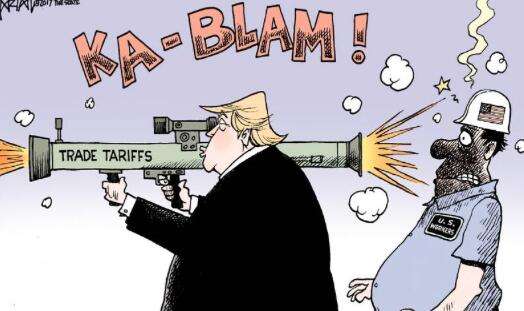
In July of this year, US President Trump imposed tariffs on parts such as automobile gaskets and ignition wiring devices. Starting this week, the United States will impose tariffs on Chinese products worth $200 billion, including the company's main headlight business. In order to be able to receive goods early and avoid a new round of tariff increases, the company’s customers are urging delivery throughout the summer.
In response, the company's export manager said that it is not clear what specific impact it will have on the business. “If we really impose tariffs, then our products will encounter difficulties in sales. Customers are likely to ask us to lower prices, but the cost of raw materials has been rising.” The company has only 125 employees, and its export volume last year was 5,000. Ten thousand yuan.
Bloomberg pointed out that with the advancement of Sino-US trade wars, some small parts suppliers and their American customers are deeply involved. At present, component suppliers are already working hard to overcome the cost increase caused by the increase in steel and aluminum tariffs, and the current trade war may have a subversive impact on the industry. According to the US Department of Commerce, between 2012 and 2017, China's parts export business to the US rose 18%, reaching $14.9 billion in 2017.
Sino-US trade war, Sino-US trade war car, Sino-US trade warfare parts
David Ni's company buys aluminum alloy wheels from Chinese manufacturers and exports the products to US retailers. Worried that the new tariffs will curb demand for the company's products, David is considering whether to abandon some of the profits to retain customers, and the company may also increase the price of the product by 5%.
David said, "The United States is the world's largest aftermarket, and its importance is irreplaceable." David's company has 30 employees and sales of about $3 million. Last year, he set up points in Anaheim, California. the company.
The report pointed out that many auto parts come from small and medium-sized enterprises, and such enterprises are not only the backbone of China's industrial rise, but also the global production supply chain workshop. According to official data, in 2017, small and medium-sized enterprises contributed about 60% of China's GDP, while private enterprises (mainly small and medium-sized enterprises) accounted for 47% of exports.
Growth is frustrated
Before the start of Sino-US trade war negotiations, Chinese component manufacturers have reason to be optimistic about the 2018 results. According to the US Department of Commerce, in the first half of this year, Chinese parts suppliers exported US$9.8 billion to US customers, an increase of about 13% over the same period last year.
But now, the growth trend is under threat. According to the list of upcoming tariffs announced by US Trade Representative Robert Lighthizer in early July, wipers, bumpers, mufflers and car seats are on the list.
For Chinese producers, their rising costs to customers can be said to be nothing to do. Janny Zhou is an export business manager for a Chinese engine parts supplier. Many of her US customers have had recurring orders every month, but in August there was no pressure on the company.
For companies such as AutoZone and Advance Auto Parts that need to source cheap, high-quality parts, the biggest problem is that it is difficult to find a suitable manufacturer to replace Chinese suppliers. In order to develop suppliers who can meet quality requirements and shipping schedules, buyers typically take years.
However, there are still some customers looking at alternative suppliers. Hopkins Manufacturing, a aftermarket parts supplier based in Kansas, has purchased from 45 Chinese factories, but is currently considering purchasing from Taiwan. Some Chinese suppliers say that the customer relationships they have built over the years are likely to be completely destroyed by the trade war.


